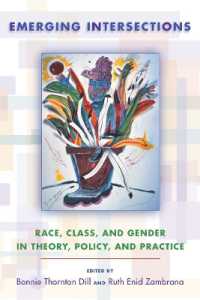Description
Climate change and environmental degradation have intensified the pressures on crucial resources such as food and water security and air quality. In this collection, academic researchers and practitioners who have lived and worked in countries as geographically and culturally diverse as Brazil, China, India, Ghana, Palestine, Uganda and Venezuela draw on their wide-ranging international and inter-sectoral experience to offer valuable comparative insights into the relationship between research and evidence-based policy for sustaining natural resources. Their contributions provide a novel mix of disciplinary perspectives ranging across geography, ecology, social policy, the political economy, philosophy, international development, engineering technology, architecture and urban planning. They examine the institutions involved in generating and mediating evidence about the sustainability of natural resources in a changing environment, and the different methodologies employed in collecting and assessing evidence, informing policy and contributing to governance. The authors demonstrate not only that social science evidence on governance and policy implementation to sustain natural resources must complement natural science inputs, but also that local communities must be an integral part of any programme development.
This book was originally published as a special issue of Contemporary Social Science.
Table of Contents
Foreword David Canter
1. Sustaining natural resources in a changing environment: evidence, policy and impact Ruth Kattumuri
2. International water targets and national realities in Sub-Saharan Africa: the case of Uganda Kevin Sansom, David Hirst and Sam Kayaga
3. Towards sustainable development: planning surface coal mine closures in India Raman Srikanth and Hippu Salk Kristle Nathan
4. The impact of urbanisation on land resources in Chongqing, China, 1997–2015 Huiming Zong and Bingjie Cai
5. Negotiating transparency: NGOs and contentious politics of the Extractive Industries Transparency Initiative in Ghana Nelson Oppong
6. Gendered participation in community forest governance in India Satyapriya Rout
7. Community empowerment in changing environments: creating value through food security Nicole Kenton and Sumita Singha
8. Environmental impact assessment: evidence-based policymaking in Brazil Kathryn Hochstetler
9. Low carbon energy and international development: from research impact to policymaking Ed Brown, Ben Campbell, Jon Cloke, Long Seng To, Britta Turner and Alistair Wray








